 “Keypad: an auditing file system for theft-prone devices,” a paper describing a new file system that enhances data security on mobile devices, has been named “Best Student Paper” at this year’s EuroSys 2011 conference. The paper was authored by UW CSE graduate students Roxana Geambasu and John P. John and UW CSE faculty members Steve Gribble, Yoshi Kohno, and Hank Levy.
“Keypad: an auditing file system for theft-prone devices,” a paper describing a new file system that enhances data security on mobile devices, has been named “Best Student Paper” at this year’s EuroSys 2011 conference. The paper was authored by UW CSE graduate students Roxana Geambasu and John P. John and UW CSE faculty members Steve Gribble, Yoshi Kohno, and Hank Levy.
Congratulations! Read more →
 Corensic, a software quality tool company founded by UW CSE faculty Mark Oskin and Luis Ceze, this week announced the availability of Jinx 1.2 R2, a software quality tool for Linux and Windows. Jinx exposes hard-to-find concurrency bugs in software, a task that ordinarily requires numerous manual steps and a great deal of luck.
Corensic, a software quality tool company founded by UW CSE faculty Mark Oskin and Luis Ceze, this week announced the availability of Jinx 1.2 R2, a software quality tool for Linux and Windows. Jinx exposes hard-to-find concurrency bugs in software, a task that ordinarily requires numerous manual steps and a great deal of luck.
Intel is blogging about Corensic and Jinx! As James Reinders states in his Intel blog, “I was a little ‘slow’ in figuring out what all the fuss was about when I first met them more than a year ago. They like to play up their product as ‘testing’ your code by making it ‘unlucky.’ Makes for cool marketing and a funny product name.
“A light bulb went off in my head when I realized they were doing what hardware folks call ‘shake rattle and roll tests’ where you literally take hardware (computer, car, refrigeration, you name it!) and shake it to see if anything comes loose or malfunctions. Brutal!”
Read the PRWeb article here; the Intel blog post here. Learn more about Corensic here. Read more →
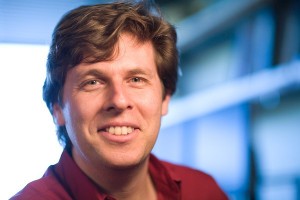
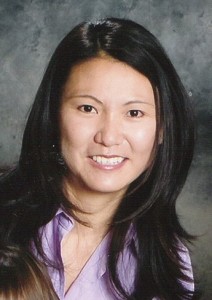 UW Interim President Phyllis Wise today announced 8 inaugural University of Washington Entrepreneurial Faculty Fellows. Included in this inaugural class are UW CSE’s Oren Etzioni and Yoky Matsuoka.
UW Interim President Phyllis Wise today announced 8 inaugural University of Washington Entrepreneurial Faculty Fellows. Included in this inaugural class are UW CSE’s Oren Etzioni and Yoky Matsuoka.
The Fellows are being honored as the University’s most entrepreneurial faculty researchers, having achieved success in translating their research into products and therapies or started groundbreaking programs for translation or collaboration with industry.
“‘The University of Washington is dedicated to maximizing our contribution to the Washington state economy, and the impact of our research. We’re immensely proud of the achievements of those chosen as UW Presidential EFFs,’ said interim UW President Dr. Phyllis Wise. ‘UW researchers will conduct more than a billion-and-a-half-dollars in federally funded research this year.’”
Congratulations to Oren and Yoky!
Read the UW press release here. GeekWire article here. Read more →
 CSE’s Mark Bun, a junior who entered the UW through the early entrance program, has been awarded a 2011 Goldwater Scholarship. Goldwater Scholarships are the premier award for undergraduates majoring in engineering and the sciences.
CSE’s Mark Bun, a junior who entered the UW through the early entrance program, has been awarded a 2011 Goldwater Scholarship. Goldwater Scholarships are the premier award for undergraduates majoring in engineering and the sciences.
Mark is the sixth CSE undergraduate to be honored with a Goldwater Scholarship. See past award winners here.
Congratulations to Mark!
Read the UW announcement here. Read more →
UW CSE alum and winner of a 2006 UW College of Engineering Diamond Award and 2011 UW CSE Alumni Achievement Award Jere my Jaech has stepped down as CEO of Verdiem.
my Jaech has stepped down as CEO of Verdiem.
“… Considered one of the most accomplished entrepreneurs in the city, it will be interesting to see where he lands,” writes John Cook in GeekWire.
Why the change? “I wanted to get back to the early-stage stuff,” he tells GeekWire. Jaech has been spending time at UW CSE, working with Shwetak Patel and others.
Seattle Business called Jaech “a serial entrepreneur with a magic touch” in the list of the Top 25 Innovators & Entrepreneurs in 2009. (See #24.)
Jaech currently serves as chair of the Technology Alliance, a technology industry group based in Seattle, advocating that an innovation economy is essential to Washington’s ability to thrive in a competitive world.
Xconomy article here. GeekWire articles here and here. Read more →
 “Using CSS3 transforms and HTML5 canvas, the Katamari Hack for Google Chrome (and other compatible browsers) allows you to turn any website into a game of Katamari Damacy! The script was created by Alex Leone, [UW CSE undergrad] David Nufer, and [UW CSE undergrad] David Truong, and won the 2011 Yahoo HackU contest at University of Washington.”
“Using CSS3 transforms and HTML5 canvas, the Katamari Hack for Google Chrome (and other compatible browsers) allows you to turn any website into a game of Katamari Damacy! The script was created by Alex Leone, [UW CSE undergrad] David Nufer, and [UW CSE undergrad] David Truong, and won the 2011 Yahoo HackU contest at University of Washington.”
The Yahoo! HackU contest give 3-person undergraduate teams 24 hours to come up with interesting web applications. “Katamari Hack” turns any web page into a game reminiscent of the video game Katamari Damacy. It allows the user to roll a ball around the page, picking up words, images, and other content off of the page and sticking it to the ball. Everything rolls around on the ball in full 3-D. It’s amazing that Alex, David and David were able to do this, especially in just 24 hours; they had to compute all of the 3-D graphical transformations themselves from scratch. You’ve gotta try this thing. It can be found at: http://kathack.com/.
This is the third year running that members of this team have taken the prize. Congratulations to the team!
Katamari Hack site here. Slashdot post here. The Stranger reports on its test here. Woot! blogs about it here. Engadget here. Digg here. Gossipgamers here. IngieGames here. More information on Yahoo! HackU here. Read more →
The January issue of New Scientist features an article on the resurgence of artificial intelligence. Key to the renaissance is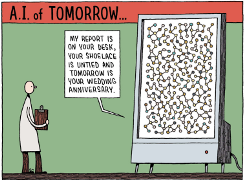 combining probabalistic programming with classical AI techniques. UW CSE Professor Pedro Domingos is quoted and UW AI research is featured.
combining probabalistic programming with classical AI techniques. UW CSE Professor Pedro Domingos is quoted and UW AI research is featured.
Read the full article here. Read more →
 At the 2011 Computers, Privacy & Data Protection conference in Brussels, Belgium, UW CSE PhD students had a strong showing, winning both the Multidisciplinary Privacy Award award and an honorable mention.
At the 2011 Computers, Privacy & Data Protection conference in Brussels, Belgium, UW CSE PhD students had a strong showing, winning both the Multidisciplinary Privacy Award award and an honorable mention.
The goal of the CPDP multi-disciplinary privacy research award is to promote the need for and reward the results of multidisciplinary research, with the participation of the representative of diverse constituencies engaged in the investigation of the new ideas in data protection. Any paper published or accepted for publication in 2010 was eligible to win.
UW CSE grad student Alexei Czeskis and alumni Iva Dermendjieva and Hussein Yapit won the award for their work on balancing privacy and value tensions in mobile parenting technologies (published at SOUPS 2010 with co-authors Alan Borning, Batya Friedman, Brian Gill, and Tadayoshi Kohno). UW CSE PhD student Tamara Denning won an honorable mention for her work on analyzing human values and security for wireless implantable medical devices (published at CHI 2010 with co-authors Alan Borning, Batya Friedman, Brian Gill, Tadayoshi Kohno, and William Maisel).
Congratulations! Read more →
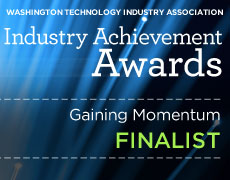 Two UW CSE research projects – OpenDataKit (ODK) and the Living Voters Guide – are two of three finalists in the “Government, Non-profit or Educational Sector” category of the 2011 Washington Technology Industry Association Industry Achievement Awards. The awards recognize Washington State companies, organizations and individuals who best demonstrate technology and service innovation and excellence.
Two UW CSE research projects – OpenDataKit (ODK) and the Living Voters Guide – are two of three finalists in the “Government, Non-profit or Educational Sector” category of the 2011 Washington Technology Industry Association Industry Achievement Awards. The awards recognize Washington State companies, organizations and individuals who best demonstrate technology and service innovation and excellence.
OpenDataKit (ODK), led by a team of UW CSE researchers that includes Gaetano Borriello, Yaw Anokwa, Waylon Brunette, and Carl Hartung, is a free and open-source set of tools which help organizations author, field, and manage mobile data collection solutions. The Living Voters Guide, designed by UW CSE’s Alan Borning and Travis Kriplean (as part of the research conducted by the Engage project), promotes civic engagement by bringing together Washington voters to discuss and explore their positions on the statewide ballot measures for 2010.
The winner will be announced at the WTIA IAA awards event on February 24. Read more →
Advances in information technology have some companies dreaming of a wo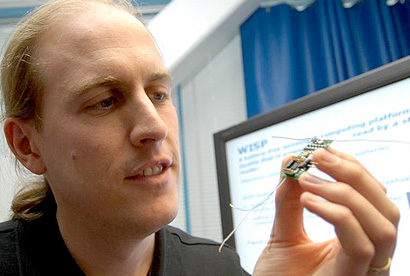 rld abuzz with sensors, some of which could reduce carbon emissions. How to power these sensors is one of the problems to be tackled. UW CSE associate professor Josh Smith, who recently moved from Intel Labs Seattle, has been working on this issue.
rld abuzz with sensors, some of which could reduce carbon emissions. How to power these sensors is one of the problems to be tackled. UW CSE associate professor Josh Smith, who recently moved from Intel Labs Seattle, has been working on this issue.
“‘That’s been a real problem for sensor units: People can build these sensor networks that send data wirelessly, but their battery only lasts a couple minutes,’ said Josh Smith.”
With some others, Smith has developed two technologies called WARP and WISP to combat this problem. He is the principal investigator of Intel’s WREL (Wireless Resonant Energy Link) project, which aims to transfer tens of watts wirelessly. He also leads a project called WISP (Wireless Identification and Sensing Platform). WISP is a battery-free platform for sensing and computation. It consists of a fully-programmable, 16-bit microcontroller that is powered wirelessly by radio waves: it harvests all the energy it needs from a standards-compliant UHF RFID reader. It also receives data from and sends data to the RFID reader.
Read the New York Times article here. Read more →
 “Keypad: an auditing file system for theft-prone devices,” a paper describing a new file system that enhances data security on mobile devices, has been named “Best Student Paper” at this year’s EuroSys 2011 conference. The paper was authored by UW CSE graduate students Roxana Geambasu and John P. John and UW CSE faculty members Steve Gribble, Yoshi Kohno, and Hank Levy.
“Keypad: an auditing file system for theft-prone devices,” a paper describing a new file system that enhances data security on mobile devices, has been named “Best Student Paper” at this year’s EuroSys 2011 conference. The paper was authored by UW CSE graduate students Roxana Geambasu and John P. John and UW CSE faculty members Steve Gribble, Yoshi Kohno, and Hank Levy.








 At the
At the 
